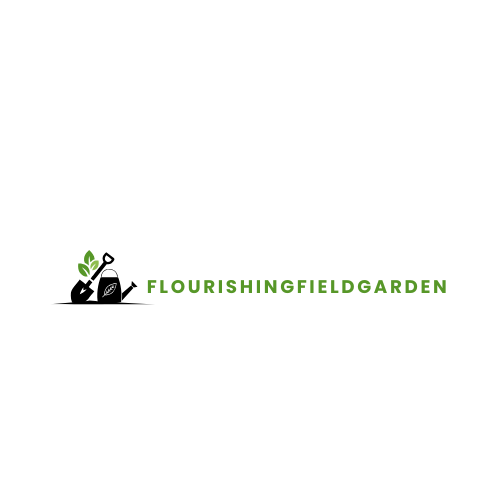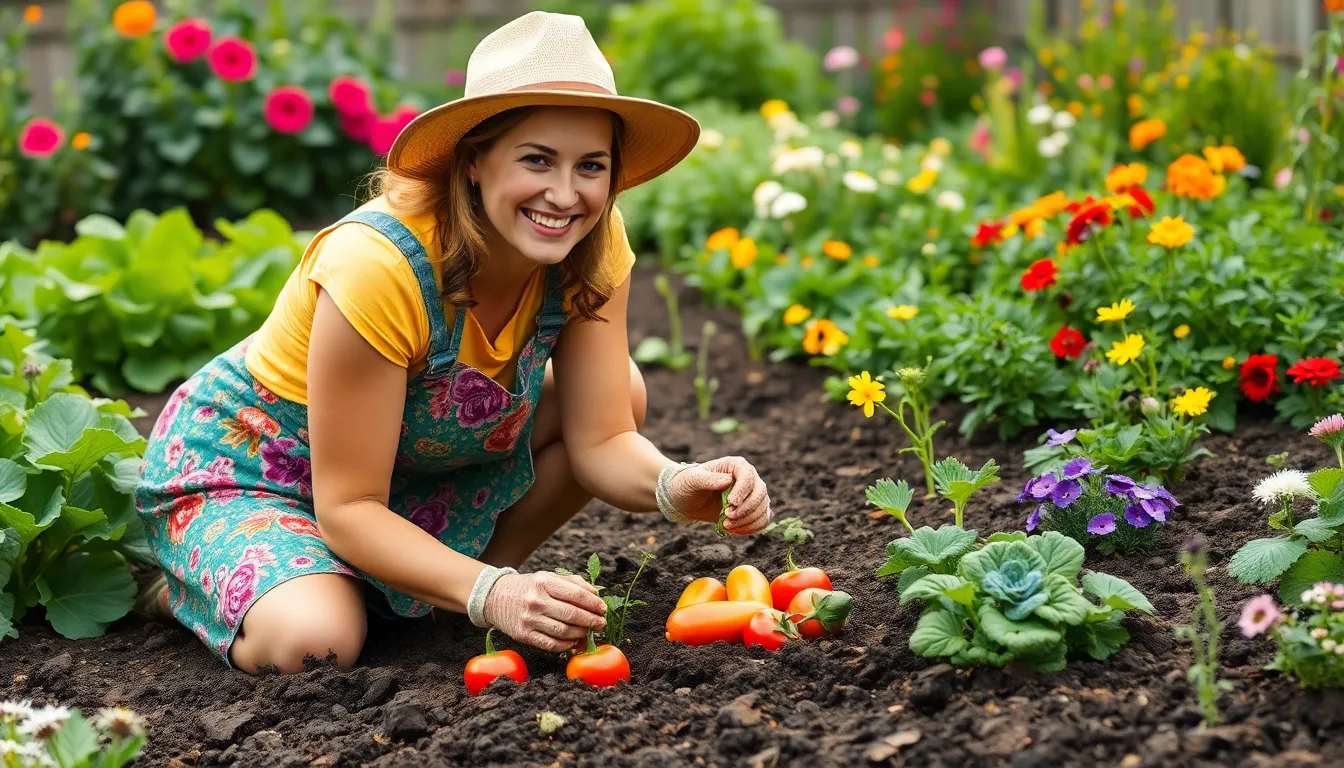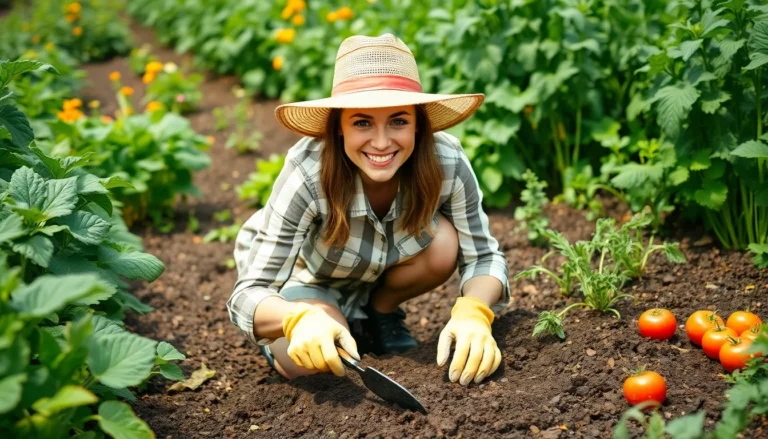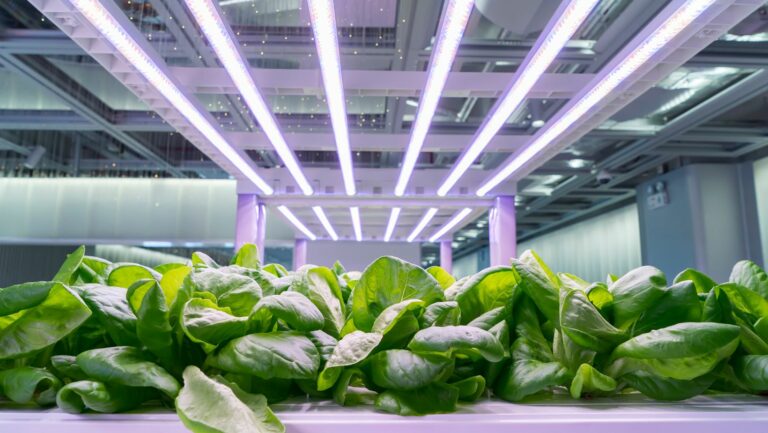Imagine stepping into your backyard and being greeted by a vibrant oasis of fresh vegetables and fragrant herbs, all grown without a hint of synthetic chemicals. Organic gardening isn’t just a trend; it’s a lifestyle choice that benefits both the planet and your taste buds. With a few simple tips, anyone can transform their patch of earth into a thriving garden that’s as good for the soul as it is for the dinner plate.
But don’t worry, you don’t need a PhD in botany or a green thumb that rivals Mother Nature herself. Whether you’re a seasoned gardener or just starting out, these organic gardening tips will have you planting like a pro in no time. Get ready to dig in, laugh a little, and watch your garden flourish while you impress friends with your homegrown produce. Who knew growing your own food could be this fun?
Organic Gardening Tips
Organic gardening offers various advantages that contribute to personal health and the environment. The practices involved create a sustainable lifestyle, benefiting both the gardener and the surrounding ecosystem.
Healthier Produce
Eating organic produce means consuming fruits and vegetables free of synthetic pesticides and fertilizers. Such foods often contain higher levels of nutrients, fostering better overall health. Studies show organic fruits and vegetables may have increased antioxidant content, which supports immune function. Gardeners can grow food without harmful chemicals, ensuring the safety of their families. Freshness also enhances flavor, leading to more enjoyable meals.
Environmental Impact
Organic gardening supports biodiversity by promoting a healthy ecosystem. Healthy soil retains moisture better, reducing water usage while improving plant health. Beneficial insects thrive without chemical interference, aiding in natural pest control. Because organic methods seek to enhance soil quality, they reduce erosion and promote better carbon sequestration. Overall, organic practices contribute to a cleaner environment and a more sustainable future for generations.
Essential Tools For Organic Gardening
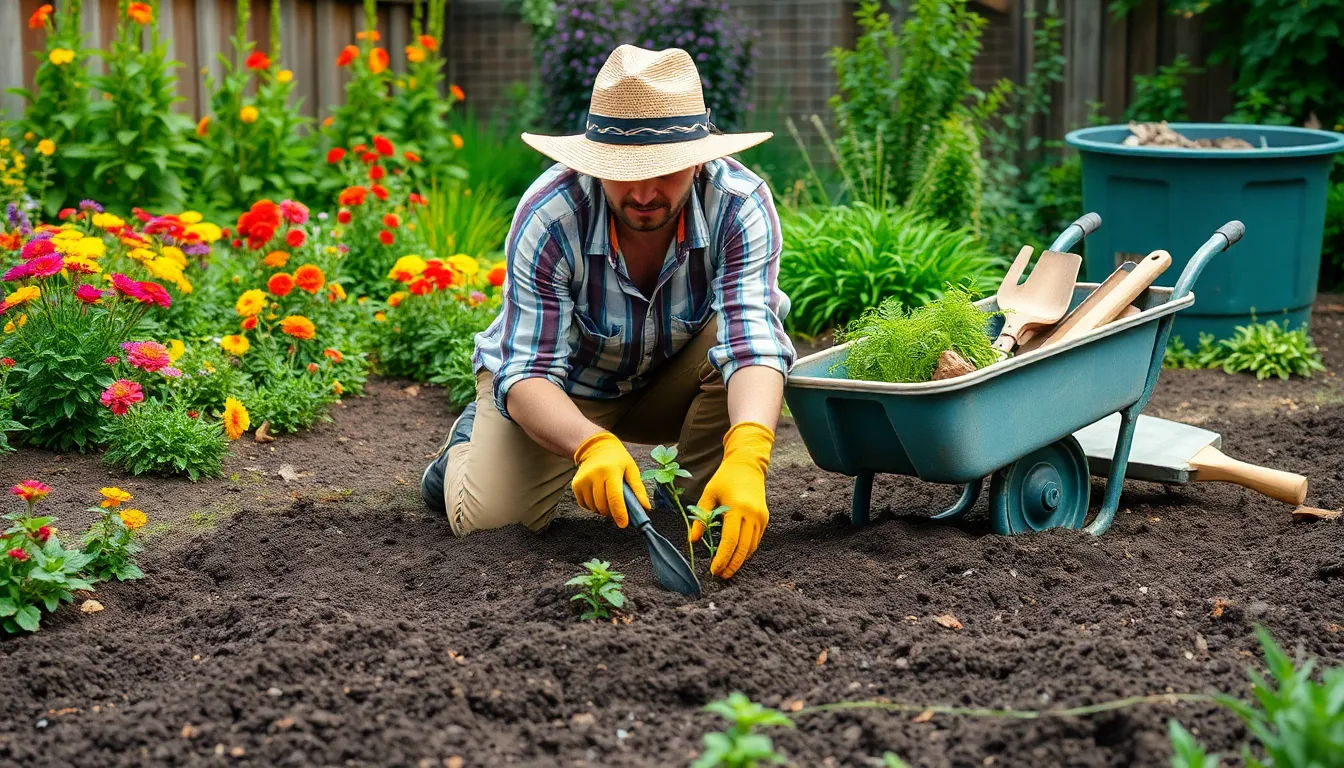
Proper tools enhance the efficiency and enjoyment of organic gardening. Equipped with the right instruments, gardeners can cultivate flourishing gardens with ease.
Hand Tools
Hand tools form the backbone of organic gardening. A sturdy trowel helps with digging and transplanting seedlings efficiently. Pruning shears enable clean cuts for healthier plant growth. Garden forks break up soil and aerate compacted earth effectively. Rakes smooth soil surfaces and remove debris effortlessly. Gloves offer protection while handling plants and soil. Each of these hand tools contributes to a better gardening experience, fostering increased productivity and enjoyment.
Gardening Equipment
Gardening equipment supplements basic hand tools for larger tasks. A quality wheelbarrow transports materials, reducing physical strain. Raised beds help manage soil quality, drainage, and accessibility for organic practices. Compost bins facilitate the creation of nutrient-rich compost, contributing to soil health. Watering cans and hoses ensure that plants receive adequate hydration. Organic mulch or weed barriers prevent weed growth while conserving moisture in the soil. Utilizing this equipment optimizes efforts, resulting in a thriving organic garden.
Soil Preparation Techniques
Soil preparation enhances organic gardening success. Techniques for testing soil quality and incorporating natural amendments create a solid foundation for plants.
Testing Soil Quality
Testing soil quality identifies nutrient levels and pH balance. Gardeners often use soil test kits available at garden centers or county extension offices. A basic kit evaluates essential elements like nitrogen, phosphorus, and potassium. After obtaining a sample, testing reveals soil’s acidity or alkalinity. Results guide gardeners in making informed decisions regarding amendments. Adjusting soil composition improves plant growth and yields.
Natural Amendments
Natural amendments enhance soil structure and fertility. Compost acts as an excellent amendment, adding nutrients while improving drainage and moisture retention. Another effective option is aged manure, which provides essential nutrients to the soil. Gardeners can also use green manures, like clover or vetch, to enrich soil when tilled under. Adding crushed rock minerals helps restore vital micronutrients. Each amendment supports a healthy soil ecosystem, leading to robust plant development.
Plant Selection For Organic Gardening
Selecting the right plants is crucial for a thriving organic garden. Plants suited for local conditions require less maintenance and offer better yields.
Native Plants
Native plants benefit organic gardens significantly. They adapt to local climates and soil types, providing resilience against pests and diseases. Additionally, these plants support local wildlife, including beneficial pollinators and insects. Examples of native plants include black-eyed Susans, purple coneflowers, and butterfly weed. These species thrive in their natural habitats and often require less water, which enhances sustainability. Choosing native varieties contributes to the overall health of the ecosystem while creating a vibrant garden setting.
Companion Planting
Companion planting proves effective in organic gardening. Planting certain species together can deter pests and enhance growth. For instance, marigolds ward off nematodes, while basil boosts tomato plant health. Utilizing combinations like carrots with onions can also optimize space and minimize pest presence. Researching companion planting pairs enables gardeners to maximize their garden’s potential. Effective planning leads to more productive plants and healthier soil. Establishing these relationships fosters a thriving organic environment while simplifying maintenance tasks.
Pest Management Strategies
Effective pest management is essential for maintaining a healthy organic garden. Organic methods focus on harmony with nature to deter harmful pests without synthetic chemicals.
Natural Pest Control
Natural pest control uses various methods to manage unwanted insects. Essential oils, like neem oil, deter pests while being safe for plants. Diatomaceous earth acts as a physical barrier, disrupting pests’ exoskeletons on contact. Soap sprays can effectively target soft-bodied insects such as aphids. Regularly inspecting plants for early signs of pest activity helps catch issues before they escalate. Crop rotation breaks pest life cycles by changing the plant species grown in a specific area each season.
Attracting Beneficial Insects
Attracting beneficial insects encourages a natural balance in the garden. Ladybugs and lacewings prey on aphids and other harmful insects. Planting flowers such as yarrow, dill, or fennel provides nectar and pollen, inviting these helpful insects. Diversity in plant selection not only enhances beauty but also boosts the presence of beneficial species. Using native plants encourages local predators to thrive in the garden. Maintaining a habitat with varied heights and structures fosters an inviting environment for these beneficial allies.
Watering Techniques For Organic Gardens
Watering techniques play a crucial role in maintaining a thriving organic garden. Effective watering ensures plants receive adequate moisture, promoting healthy growth.
Efficient Watering Systems
Drip irrigation systems deliver water directly to the plant roots, reducing evaporation and runoff. These systems prove efficient for conserving water while providing consistent moisture. Soaker hoses also offer a handy method, soaking water slowly into the soil and minimizing waste. Timers can be incorporated for automation, ensuring plants receive consistent watering without manual effort. Regular monitoring of soil moisture helps gardeners adjust watering schedules based on plant needs and seasonal changes.
Rainwater Harvesting
Collecting rainwater offers an eco-friendly way to water gardens. Rain barrels can be positioned under downspouts to capture runoff from roof surfaces. This method reduces reliance on municipal water supplies and lowers water bills. Using a filtration system can improve water quality and prevent debris from entering the storage. Rainwater is naturally soft, free from chemicals, and beneficial for plant growth. Implementing a drip system with harvested rainwater maximizes efficiency and conserves resources.
Organic Fertilizers And Nutrients
Organic fertilizers enrich the soil and promote healthy plant growth. These fertilizers utilize natural ingredients, providing essential nutrients without harmful chemicals.
Homemade Fertilizer Recipes
Creating homemade fertilizers is simple and cost-effective. Use kitchen scraps like banana peels and coffee grounds, which deliver potassium and nitrogen. Composting fruit and vegetable scraps creates nutrient-rich compost, ideal for soil amendment. Eggshells, crushed for calcium, strengthen plant cell walls. Additionally, a mixture of water and Epsom salts serves as a magnesium booster for plants like tomatoes. Fertilizers derived from natural sources effectively support growth while reducing waste.
Choosing the Right Organic Fertilizers
Selecting the appropriate organic fertilizers requires understanding plant needs. Look for products labeled as organic, containing materials like fish emulsion, bone meal, or seaweed. Analyze soil tests to identify specific nutrient deficiencies, allowing tailored applications. Each plant type may have distinct requirements; for example, leafy greens thrive with nitrogen-rich fertilizers, while root vegetables benefit from phosphorus. Timing also plays a role; applying fertilizers during active growth ensures maximum absorption. Consider both slow-release and quick-release options to enhance nutrient availability throughout the growing season.
Conclusion
Embracing organic gardening opens up a world of benefits for both individuals and the environment. By utilizing natural methods and sustainable practices, gardeners can cultivate vibrant and nutritious produce while contributing to a healthier ecosystem. The journey of organic gardening is not only about growing food but also about fostering a deeper connection with nature.
With the right tools and techniques in place, anyone can enjoy the satisfaction of nurturing their own garden. Whether it’s selecting the perfect plants or implementing efficient watering systems, every step taken supports a more sustainable lifestyle. As they explore this rewarding hobby, gardeners will find joy in the process and pride in sharing their homegrown bounty with family and friends.
